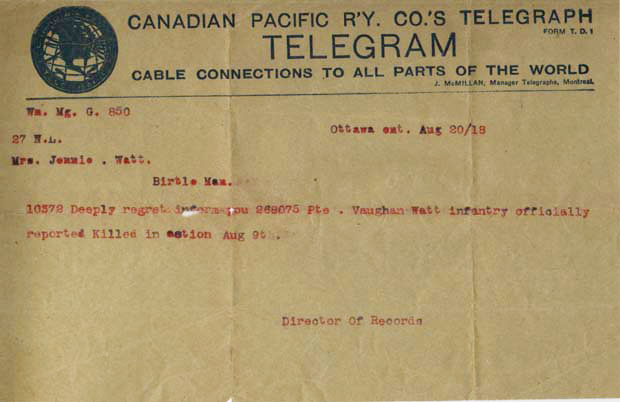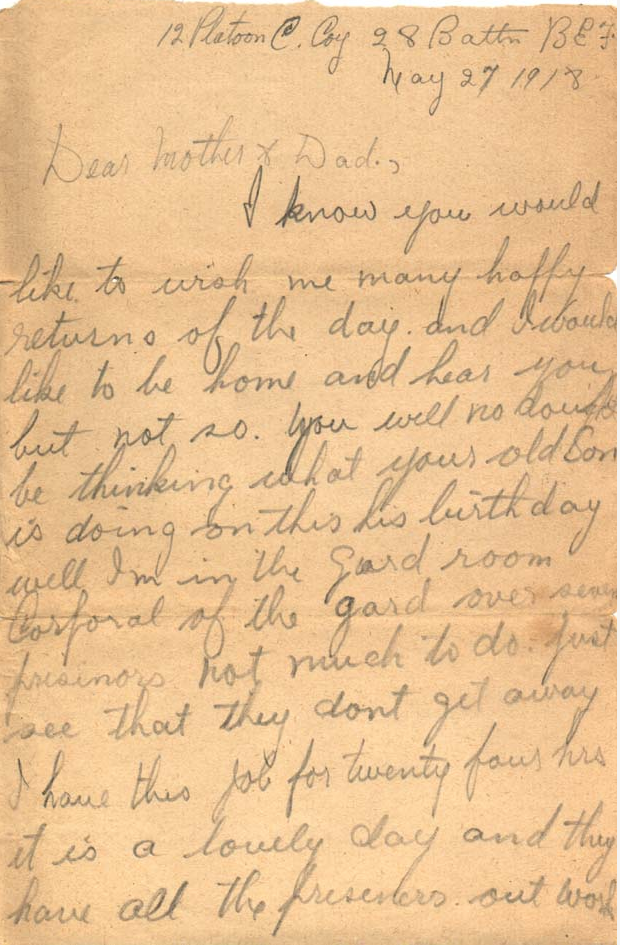
The telegram sent to Vaughan David Watt's family, informing them of his death.
‘Mother, it’s terrible the things we see over here’
The experience of one soldier can serve to convey the fragility of life and the tragedy of war as it impacts the lives of those left behind. It illustrates exactly why Remembrance Day is important.
Vaughan David Watt was born in Birtle, Manitoba, in 1892. His father was a farmer and a manager for United Grain Growers. His mother was the first Secretary of the Federated Women’s Institute in 1910 and was later its national president from 1923 to 1925.
In 1916, Watt enlisted as part of the 28th Battalion Canadian Infantry (Saskatchewan Regiment) and was promoted to Lance-Corporal in May 1918.
In 2003, Watt’s niece Gwen Snow Zingle donated a collection of war memorabilia to Archives and Special Collections of the University of Manitoba. They include a transportation warrant, correspondence between Watt and his family during his time serving in the First World War, letters of condolence upon his death, reports on his memorial service and burial, a letter of tribute to Watt, and some photographs.
In a letter dated May 27, 1918, Watt wrote his parents from the front lines in France. He started out describing what he was doing on his birthday and wishing he was with them:
Dear Mother & Dad,
I know you would like to wish me many happy returns of the day and I would like to be at home and hear you, but not so. You will no doubt be thinking what your old son is doing on his birthday… well I’m in the guard room, Corporal of the guard, overseeing the prisoners. Not much to do; just see that they don’t get away. I have this job for twenty four hours. It is a lovely day and they have all the prisoners out working so I thought it would be a good time to write you a note and let you know I’m still well and hope you at home are the same…
And then, jarringly, he noted:
My chum got killed Saturday morning. He and I have been together ever since coming to France. Saturday morning he got up and went down to the cook’s house for his breakfast and a shell came and blew him and the cook’s house and three others, killing them all. Mother, it’s terrible the things we see over here. Life is nothing. But hope the good Lord will spare me to get home. If not, we will meet in the other world where there is no war…
He ended his short letter with the simple salutation:
I am your loving son, Vaughan.
He died on August 9, 1918, just a little more than two months later.
It was only three months before Armistice Day and the end of the war.







